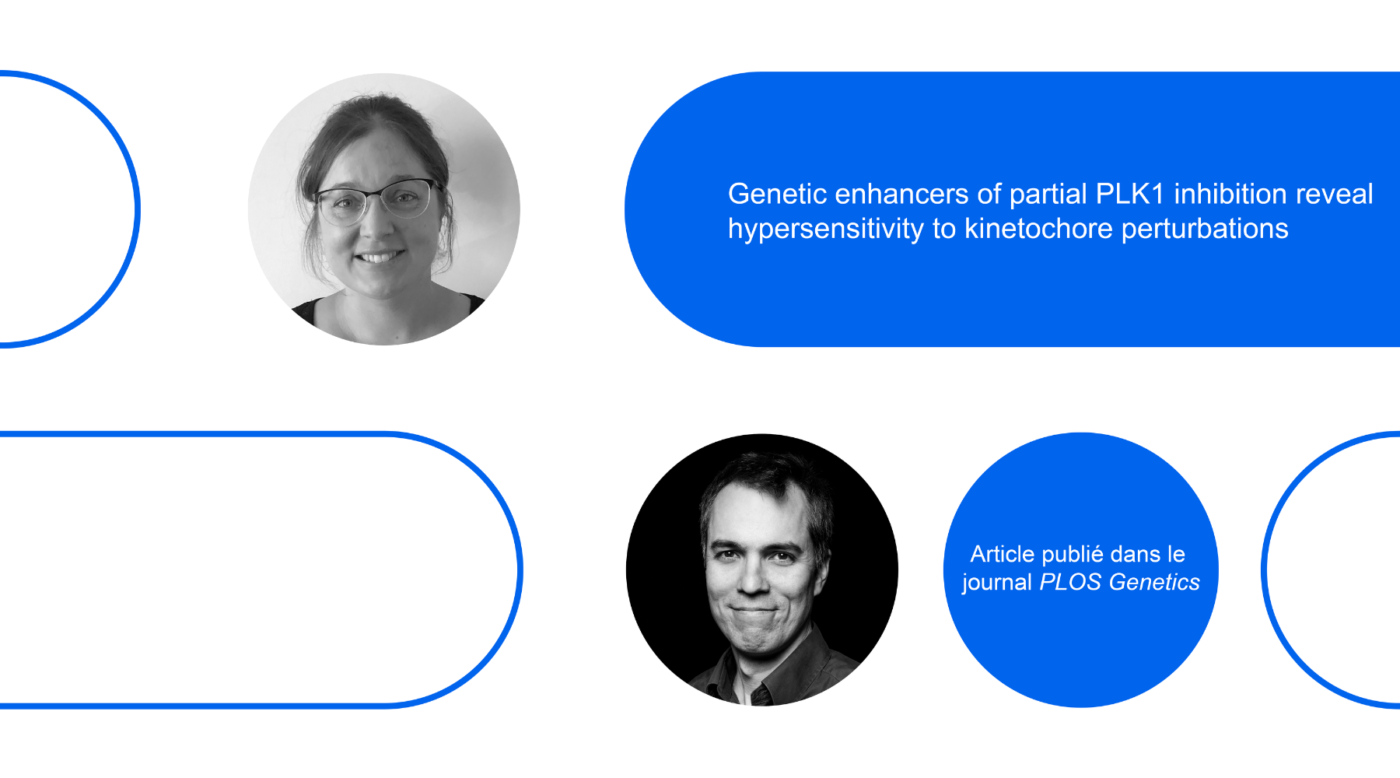News
KIF18A: a promising anticancer target for combinatorial therapy with PLK1 inhibitors
Published on September 6, 2023
The PLK1 kinase is involved at multiple levels in the control of cell division. Cancer cells are often particularly dependent on the activity of this enzyme. However, the anticancer therapies developed to target PLK1 remain largely ineffective to date. The laboratory of Professor Vincent Archambault, Director of IRIC’s Cell Cycle Regulation Research Unit, collaborated with the laboratory of Professor Michael Tyers, then Director of IRIC’s Systems Biology and Synthetic Biology Research Unit, to better understand the cellular functions of PLK1 and to identify genes whose inactivation interferes with cell proliferation in synergy with existing PLK1 inhibitors. The results suggest that inhibition of the kinesin KIF18A could be a therapeutic avenue to exploit in combination with PLK1 inhibitors. Published in the journal PLOS Genetics, the study was led by research advisor Karine Normandin.
Partial inhibition of PLK1 sensitizes human cells to kinetochore and centromere perturbations
Using a chemogenomic approach in cultured human cells, the team first identified genes that become essential for cell division when PLK1 activity is reduced. The results obtained bear the signature of cellular functions associated with PLK1, and more specifically of functions at the level of centromeres and kinetochores, two closely associated structures enabling chromosomes to be attached to the mitotic spindle during cell division. The two genes that most amplify the effects of PLK1 inhibition are KIF18A and SKA1, coding respectively for the kinesin KIF18A and the kinetochore protein SKA1.
Synergistic effect reduces cell proliferation and causes nuclear defects
The work carried out shows that, when PLK1 activity is reduced, the additional inactivation of KIF18A or SKA1 blocks cell division and causes defects in the reformation of cell nuclei. One of the nuclear defects observed is the formation of micronuclei, structures that can induce an antitumor inflammatory response. The team suggests taking advantage of these combined effects to induce an effective anti-tumor response devoid of the collateral toxicity caused by some existing anti-mitotic treatments. With KIF18A-inhibiting molecules already in development, the kinesin could potentially be targeted therapeutically in combination with PLK1.
Cited study
Normandin K, Coulombe-Huntington J, St-Denis C, Bernard A, Bourouh M, Bertomeu T, Tyers M, Archambault V. Genetic enhancers of partial PLK1 inhibition reveal hypersensitivity to kinetochore perturbations. PLOS Genetics. 2023 https://doi.org/10.1371/journal.pgen.1010903
